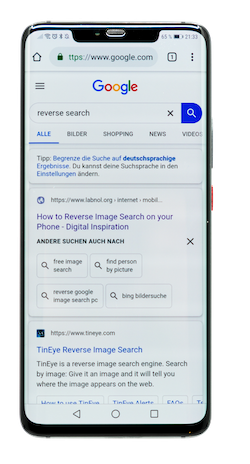You Google, I Google, we all Google! You don’t need to be an SEO expert to understand how people use search engines or why ranking highly is important for your business.
Before you seek out said local SEO expert, there are plenty of steps you can take yourself to optimize your website. If you’re a small business, why splash the cash when you can save your marketing budget for when you really need assistance?
So here you have it, a step-by-step guide to SEO to kick your website into gear.
1. Make sure your pages can be seen by Google.
First thing’s definitely first. Check with your web developer that your pages are actually being indexed by search engines. They may need to change a few settings. In fact, stop everything and message them right now before you forget. We’ll wait.
…
Done? Excellent. Let’s continue.
2. Keyword Research Part I: Brainstorm keywords related to your product or service.
To help you, think as a local SEO expert can consider:
- What is your product?
- What problem(s) does your product solve?
- What are some related terms and phrases?
If you’re struggling, you can skip to step 3, but where’s the fun in that? In all seriousness, it’s good to try and create a list yourself, you may come up with an angle your competitors haven’t considered.
 3. Keyword Research Part II: Analyse
3. Keyword Research Part II: Analyse
So, now your list is looking pretty decent, it’s time to figure out which ones will be most effective on your website.
There are a ton of paid SEO tools out there but we’re going to let you into a little secret… come closer…there’s a magical tool online that does a pretty great job…and it’s FREE. Ubersuggest allows you to search keywords and find out a) the volume of searches and b) “SEO difficulty” (the estimated competition your keyword would have through organic searches. If you’re considering paid Google ads, Ubersuggest also gives you an estimated Cost Per Click value.
A higher search volume usually means that it’s much more competitive, so make sure you find a good balance between the two. Consider including your location or a specific feature of your product. Your customers may well be looking for something local. SEO expert, Neil Patel, (considered a kind of Guru in SEO geek circles) explains that longer, more specific keywords are less competitive and account for 70% of all web searches. These are known as “long-tail keywords”.
Also bear in mind “search intent”. What are the people searching these keywords looking for? Do they want concise information or do they want to buy something? For example, if someone searches “Christmas gifts for bikers” then they’re almost definitely looking to buy. So there’s no point writing informational content.
4. Keyword Research Part III: Search Competitor’s keywords.
Ubersuggest also allows you to trawl your main competitors and find which keywords they’re using. Let them inspire you, but don’t be a total copycat. How do you differ from your competitor? What makes your brand unique? Make sure you incorporate these differences into your keywords so that your ideal buyer can find you.
5. Sprinkle your keywords in your website. But act natural.
Back in the old days, when dialup was a thing, sneaky SEO tricksters would shove keywords into their websites wherever they could. Google soon wised up to “keyword stuffing” (as it’s known) and they actively penalize sites that do it.
Any local SEO expert in 2022 will tell you that you need to fit your keywords in organically. By creating relevant content you’ll also end up including associated words that Google’s algorithms will recognize too. Google will consider this proof that your content is relevant. In other words, act natural, and the Googlebots will not only let you into the party, but they’ll also top up your drink!
6. How to include keywords for SEO naturally
If you’ve chosen your keywords wisely, it should be fairly simple to include your keywords in your home page, landing page, about page and product pages. It may be as simple as tweaking existing copy so that it matches your keyword exactly.
Top Tip: Google likes new and shiny things. It’s constantly looking for new pages to trawl. It’s obviously quite difficult and unnecessary to regularly update the copy on your existing web pages, but there’s a neat solution – blogging!
Blogs allow you to regularly update your website with pages that include your keywords. It’s also easier to naturally include long-tail keywords. As a bonus, blogging regularly also helps to establish you as an expert in your field.
This goes without saying, but never ever copy content from other blogs. Not only is it rude and could land you in hot water legally, but also Google sniffs out duplicate content like that *snaps fingers*. If you’re hiring a copywriter externally, use a plagiarism checker like quetext to ensure that your copy is original.
Make sure your keywords are included in URLs, titles, and meta descriptions.
7. Link up
Including links to your other blogs and webpages will help Google to measure your page’s relevance. These are known as internal links. Don’t just link willy nilly though! Make sure the pages you link to are rich in relevant content.
Ideally, you also want your webpages to be linked elsewhere. As any SEO expert will tell you, inbound links are SEO gold.
- Connect with bloggers/influencers/journalists who write on topics in your field.
- Use Ubersuggest to find out who is backlinking your competitors and reach out to them for opportunities.
- Share your blogs on your social media channels, and encourage others to share them.
 8. Get in touch with a local SEO expert
8. Get in touch with a local SEO expert
So, now you’ve done everything you can by following these steps, it’s time to get in touch with a friendly SEO agency.
They’ll be able to use their skillset and more advanced SEO tools to analyze your current strategy and give you tips moving forward.
If you haven’t noticed already, keeping your page optimized and updated is a big job. You’ve got to put a ring on it and commit!
Plenty of business owners make the decision that their time is best spent elsewhere and decide to outsource to an SEO agency from the outset. Certainly not a bad decision if you can afford it. But if you have the time and wherewithal, we hope this blog can help you do the bulk of the work yourself.
Whenever you’re ready for expert help, give us a shout. Take a look at our existing plans, or call or email us to discuss your needs. Whatever they may be, we’re ready to help.



![B2B vs B2C Online Business Best Practices with Examples [Updated 2022]](https://jdperoro.com/wp-content/uploads/2020/07/B2B-vs-B2C-Online-Business-Best-Practices-with-Examples-500x383.jpg)

